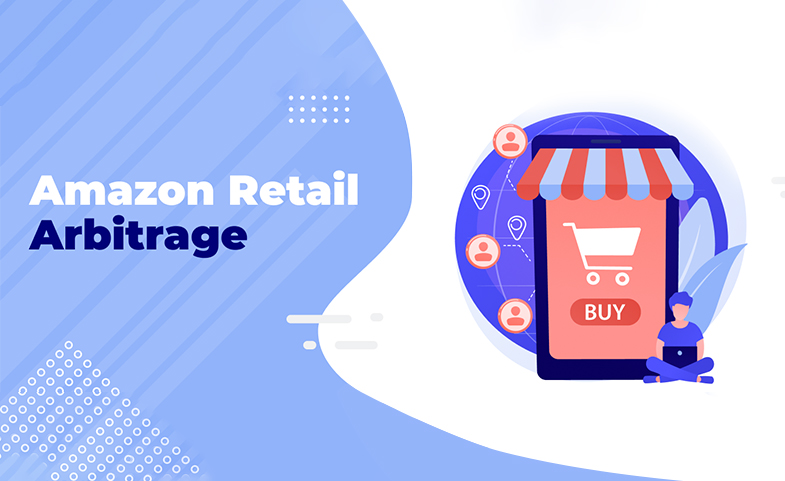Introduction
In the world of e-commerce, Amazon stands as a colossal marketplace, serving as a platform for millions of sellers to reach a global audience. Amid this vast marketplace, a distinct and intriguing strategy has emerged – Amazon Retail Arbitrage.
What is Amazon Retail Arbitrage?
Amazon Retail Arbitrage is a business strategy that involves buying products at a lower price from traditional retail stores and reselling them on Amazon for a profit. In essence, it's about exploiting price disparities between physical retail locations and the online marketplace. The arbitrageur (seller) aims to identify products with a significant price difference between their purchase price and what they can sell for on Amazon, thereby capitalizing on the spread.
How does retail arbitrage compare to other business models on Amazon?
- Private label is when you create your own product label/brand, generally by modifying an existing product in the market. It’s the most common method of selling on Amazon and can be incredibly profitable, but most sellers need some capital to get started.
- Wholesale is when you buy products in bulk directly from a brand or from distributors (not retail stores) to sell on Amazon, which also requires start-up money. Wholesale is a more sustainable business model as you can replace orders every month and you are an authorized reseller, meaning you don’t have to worry so much about inauthentic claims.
- Dropshipping is when you buy products directly from a manufacturer who fulfills the order and ships directly to the customer.
- Handmade is the process by which you create or craft your own products to sell on Amazon.
How Amazon Retail Arbitrage Works
Open your Amazon seller account
Begin by opening your own Amazon Seller account.
- You have two options to choose from: an individual seller account or a professional account.
- The individual account is free, but you’ll need to pay $0.99 for each sale and have a maximum limit of 40 products. The professional account costs $39.99 monthly but allows you to list more than 40 products without the per-sale fee. It also gives you access to the convenient Fulfillment by Amazon (FBA) feature, where Amazon takes care of storage and shipping for a fee.
Look for products to sell
- Finding the right product for retail arbitrage takes time and patience. Look for inexpensive products that can be sold profitably, even in the face of competition from large chains. Selling and reviewing products on Amazon can help identify profitable items.
- Use the Amazon Seller smartphone app to compare prices, scan barcodes, and view product listings in real time. Don't forget to factor in Amazon's fees and shipping costs when calculating potential profits.
List your products and start selling
- Once you’ve sourced your products, it’s time to list them on your Amazon account and start selling. Optimize your product listings by using relevant keywords, providing complete product information, and including high-quality product images.
Choose fulfillment option
- Choosing the FBA (Fulfilled by Amazon) option for your retail arbitrage business can yield significant benefits. When you visit FBA, you send your purchased products to Amazon's fulfillment centers, where they handle storage, packaging, shipping, and customer service on your behalf.
- This makes your products eligible for Amazon Prime benefits, provides faster shipping, and improves visibility on the platform. Prime-eligible products often receive preferential treatment in search results and can attract more potential customers.
- Additionally, to stay competitive in the market, you can use a price matching strategy. By monitoring your competitors' prices and adjusting them accordingly, you can ensure that your products remain attractive to potential buyers.
- Price matching can help you maintain a competitive edge and increase your chances of winning the Buy Box, where customers can directly add items to their cart from your product list.
Monitor reviews and manage your platform
- Customer reviews play a crucial role in your success as a seller. Strive to offer exceptional service to receive positive reviews. Keep an eye on your competitors’ reviews to gauge their performance and make necessary adjustments to your selling strategy.
By following these steps, you’ll be well on your way to starting your retail arbitrage journey on Amazon.
Keys to Success in Amazon Retail Arbitrage
Research and Preparation
- Successful arbitrageurs invest time in market research and understanding Amazon's rules and fees. They also identify profitable niches and products that are likely to sell well.
Pricing Strategy
- It's essential to have a competitive yet profitable pricing strategy. Sellers should consider Amazon fees, shipping costs, and the current competition when determining the selling price.
Inventory Management
- Effective inventory management is critical to avoid long-term storage fees and ensure a constant flow of products to sell. Keeping track of sales velocity and adjusting purchases accordingly is crucial.
Seller Feedback
- Maintaining a positive seller rating and excellent customer service is vital. Good feedback and ratings can enhance visibility and customer trust, ultimately leading to higher sales.
Legal Compliance
- Sellers must adhere to all applicable laws and regulations, including sales tax collection and product sourcing legality. Failing to do so can result in legal issues and account suspension.
Scalability
- Successful arbitrageurs often scale their business by reinvesting profits into buying more products. They may also explore different sourcing channels, like wholesale or online arbitrage.
Pros and Cons of Amazon Retail Arbitrage
Pros:
- Low Startup Costs: Retail arbitrage can be started with minimal investment.
- Profit Potential: Sellers can earn significant profits by identifying lucrative opportunities.
- Flexibility: The business can be run part-time or full-time, allowing for flexibility.
- Access to Amazon's Massive Audience: Leveraging Amazon's customer base can lead to high sales volumes.
Cons:
- Time-Consuming: Sourcing, listing, and managing inventory can be time-intensive.
- Limited Scalability: Scaling the business can be challenging due to the need for continuous product sourcing.
- Competitive Environment: The market is competitive, and prices can fluctuate quickly.
- Inconsistent Income: Sales and profits may vary due to product availability and market conditions.
Conclusion:
Amazon Retail Arbitrage is a unique e-commerce strategy that thrives on price disparities between traditional retail stores and Amazon's online marketplace. With careful research, pricing strategies, and effective inventory management, entrepreneurs can build a profitable business through retail arbitrage. However, it's crucial to be aware of the challenges, including the competitive nature of the market and the need for constant product sourcing. For those willing to put in the effort and dedication, Amazon Retail Arbitrage can be a lucrative and rewarding business venture in the ever-evolving world of e-commerce.


